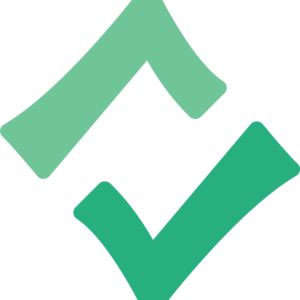By Kelly Parker, Sr. Director of External Affairs and Government Relations, CE Broker by Propelus
Imagine trusting your life to a healthcare professional—your doctor, nurse, dentist or another professional—who hasn’t updated their skills or knowledge in years. You might assume their license renewal guarantees they’re current and competent. But what if it doesn’t? What if all they had to do was check a box, without anyone verifying they’ve done the work?
That’s the reality of how many regulatory boards manage continuing education (CE) tracking today. Attestations without verification are often the norm, with audits typically reaching only 3-5% of licensees at random. The rest? Unchecked. Unverified. And potentially unprepared.
On the other hand, there are very real concerns about straining resources and burdening healthcare professionals with CE tracking. To help regulatory leaders, policymakers, and professionals understand the best path forward, let’s dive deeper into all angles of the debate.
What’s at Stake?
State regulatory boards are charged with protecting the public by ensuring licensed professionals meet minimum standards for safe practices. For initial licensure, the process is rigorous—exams, transcripts, background checks. But renewals? That’s where the system falters.
Take this example: In a pool of 40,000 professionals, a 5% audit rate means just 2,000 individuals are asked to provide proof of CE compliance. Meanwhile, the other 38,000 continue practicing without ever having their qualifications re-verified.
But if a healthcare professional falls behind on skills or knowledge, it’s not just a missed checkbox. It could mean that a child gets misdiagnosed, a surgery goes wrong, or a patient suffers preventable complications.
Now compare this to renewing a vehicle registration. Every year, most must provide proof of inspection and insurance. Why? Because public safety demands accountability.
This begs the question: if we require this level of verification to drive a car, shouldn’t we demand at least as much from the professionals driving our healthcare?
The Arguments for Mandatory CE Tracking
1. Competence Isn’t Optional
Industries evolve. Technology advances. And the standards of care and practice shift. Mandatory CE tracking ensures professionals stay current with these changes, maintaining the knowledge and skills necessary to protect the public.
Well-structured CE requirements don’t just ensure compliance—they improve outcomes. High-quality, mandatory CE has been shown to enhance patient care and reduce errors. This isn’t about creating hurdles for professionals; it’s about creating safeguards for the public.
2. Accountability Builds Trust
Audits alone can’t close the gap. A system that tracks and verifies CE completions for every professional provides the consistency and transparency boards need to uphold their mission. It reinforces public trust by ensuring that all professionals—not just a small, randomly selected percentage—are held to the same high standards.
3. Modern Tools, Minimal Burden
Here’s the good news: Mandatory CE tracking doesn’t have to create extra work for already stretched boards. Modern, technology-driven systems automate the process, streamlining verification and reducing administrative burdens.
With these tools, regulatory boards can focus on their core mission while professionals meet their requirements more efficiently than ever. It’s a win-win for everyone involved.
Addressing the Concerns
“It’s Too Much Work for Boards”
Regulatory boards often operate under tight budgets and limited staff, juggling countless priorities. Adding CE tracking to their workload can feel overwhelming—but that’s where modernization comes in.
Automated systems handle the heavy lifting, replacing manual processes with streamlined, efficient solutions. These systems don’t just save time; they ensure accuracy and consistency, making it easier for boards to protect the public without stretching their resources to the breaking point.
“It’s a Burden for Professionals”
Some worry that mandatory CE tracking adds unnecessary stress for professionals already dealing with high workloads and burnout. But well-designed systems and flexible CE options—like on-demand courses—allow professionals to meet requirements on their own terms.
Far from being a burden, CE tracking empowers professionals to stay sharp and deliver better care. It’s not about jumping through hoops; it’s about maintaining the trust and competence their licenses represent.
The Path Forward
There is a way to balance the need to uphold public safety without overwhelming boards or professionals.
Modern, mandatory CE tracking isn’t about creating more work—it’s about building a system that works for everyone. It protects the public, empowers professionals, and reinforces trust in the licensing process.
The right system can help both boards and professionals efficiently track CE by automating tasks and eliminating manual labor.
We invite regulatory leaders, policymakers, and professionals to join this critical conversation on how to make CE tracking work best for all involved. Together, we can shape a future where accountability, trust, and public safety are at the forefront of every licensing decision.
